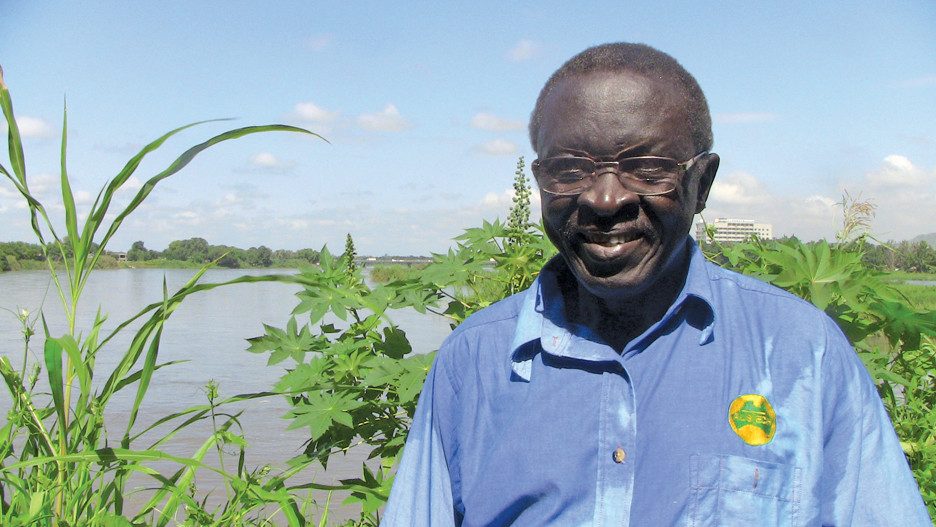ADAM BEMMA/IPS
Along the fertile banks of the White Nile, a war veteran’s co-op is planting for a food-secure future in South Sudan, a country potentially facing famine.
Wilson Abisai Lodingareng, 65, is a farmer and founder of Werithior Veterans’ Association (WVA) in Juba, South Sudan. The association is a group of 15 farmers that tends a garden 6 kilometers outside Juba where they grow vegetables on nearly 1.5 hectares.
“I have seven active members in the group, all former SPLA [Sudan People’s Liberation Army] troops,” Lodingareng said. “I call them when it’s time to weed the garden. I visit once a day, each morning, to check the health of the crops and to see what’s ready for the market.”
Some of the other WVA members have been displaced from their homes and are now living in a United Nations mission camp in Juba.
Since the conflict began December 15, 2013, between the government forces of South Sudanese President Salva Kiir and the rebel forces of former Vice President Riek Machar, 1.5 million people have lost their homes. An estimated 3.5 million South Sudanese are suffering from emergency levels of food insecurity.
Lodingareng said obtaining a plot along the Nile River was difficult, with many international investors vying for the prime agricultural real estate. It took him almost three years to acquire a lease from the community that owns the idle land.
As of September 2014, he had transformed the field with long grass and weeds into a garden with leafy vegetables and herbs sprouting. The association cultivates okra, kale, mulukhiyah (jute leaves) and coriander.
“These are short-impact crops which grow quickly, within one to two months,” Lodingareng said. “Okra is harvested every three to four days.”
The philosophy behind the WVA garden is to see land as a resource not to be wasted. Lodingareng sees a future expansion into the surrounding land, which is also lying idle.
“I’m looking at expanding to grow food crops like maize, potatoes, carrots and eggplant,” he said. “The first year has been a struggle. The next year should be much better.”
The Mennonite Central Committee in South Sudan provided him with some capital for leasing the land, training in fruit and vegetable production, farm supplies, and tools.
Lodingareng fought as part of the SPLA from 1985 to 2008, and when he wasn’t reactivated into the military, he began to think back to his early days as an economics student at Makerere University in Kampala, Uganda.
“I took a course and wrote a paper on agriculture economics,” he said. “I was taught that land is food and that crops share behavior traits with humans.”

